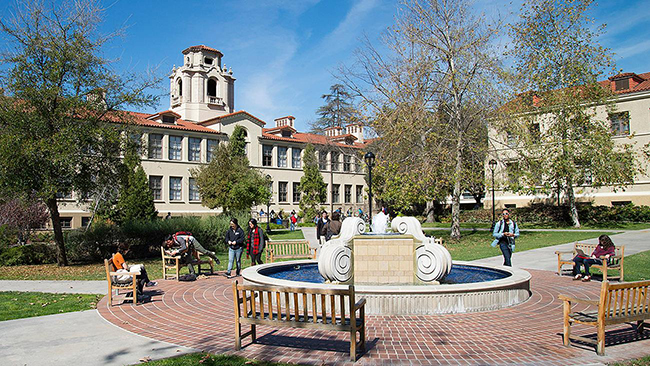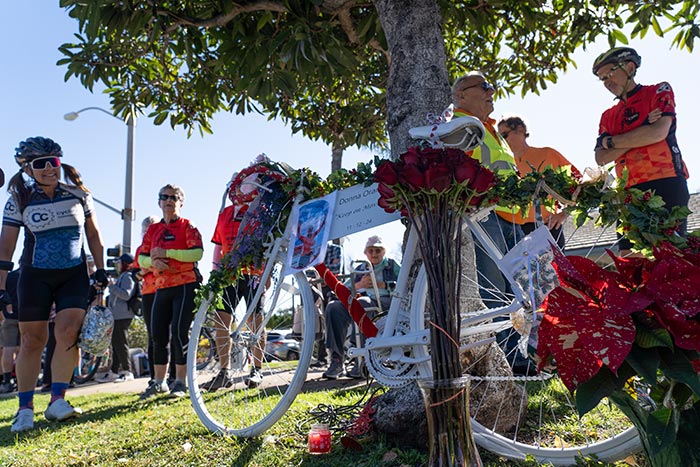Residents weigh in on proposed sales tax increase
A sunny Saturday didn’t stop dozens of Claremonters from attending the city’s first community meeting about a proposed sales tax increase.
Residents curious about the proposed measure filled the Hughes Center on June 22. The city is still in the early stages—the measure hasn’t been approved by council yet but is well on its way to becoming a reality.
A majority of those who spoke seemed in favor of the increase, while those who were skeptical suggested using part of the money to fund a new police station.
The city is proposing a sales tax increase for the November 2019 ballot as a way to maintain services in the city amid two consecutive years of budget cuts. Last year, Claremont cut $3.4 million to balance the budget, and this year the city cut $1.3 million.
Finance Director Adam Pirrie noted that the city is already facing an $800,000 deficit next year that could balloon to as much as $2.8 million by 2023. The city has claimed it may have to cut services in torder to balance future budgets, including senior services, community-based organization funding, village maintenance and tree services.
Claremont’s current sales tax rate is 9.5 percent—the majority (6.25 percent) goes to the state and the city gets one percent. That one percent amounts to $4.5 million annually, Mr. Pirrie said.
The city proposes a three-quarter cent increase to reach the state-mandated cap of 10.25 percent. If passed, Claremont could see an additional $2.5 million annually.
The city has maintained that if Claremont chose not to pursue a sales tax increase, another state or county agency could swoop in and claim the gap through another measure, raising the city’s tax rate with none of it kept locally.
“Is there a sense of urgency? We believe that there is,” interim Assistant City Manager Chris Paulson said. “We’re hearing from a lot of communities, a lot of county departments that are interested in pursuing this tax increase.”
He stressed that the increase is only to keep the status quo in Claremont. “This is maintaining,” Mr. Paulson said. “This is not an opportunity for a spending spree or a hiring spree, this is to maintain current levels of service, current programs that we have.”
The tone toward the measure from those in attendance leaned positive. Sue Keith said she was “totally in favor” of the sales tax measure, and advocated for more community outreach to educate potential voters.
Parker Emerson said not going forward would be irresponsible for the city and its citizens.
Some who were more skeptical wondered why part of the money from an increase couldn’t be used to pay for a new police station. City Manager Tara Schultz said that while the station is needed, the increase is “not specifically for that.”
“We need to make sure that we are finding revenue sources to maintain our operations,” she said. “The police station is something that we are very adamant about moving forward and finding an opportunity to do that—we’re looking at all the funding sources we possibly can to do some of the basics. But the intent for the sales tax is just to maintain our current operations.”
She later added that if the tax were to go toward a single issue like the police station, it would need a two-thirds majority vote, as opposed to a 50 percent-plus-one threshold for the sales tax increase.
Matt Magilke, who chairs the Police Station Citizens’ Advisory Committee and previously urged the city to dedicate a portion of the new tax to capital improvements, asked why a sales tax was considered “not viable” by the city for a new police station in 2016, but is viable now.
“What has happened in the last three years?” he asked.
Jim Keith, who is also on the committee and was also part of the committee for Measure SC, disagreed. “It was the committee’s decision it was not the best solution for the police station,” he said.
When an audience member asked about raising the Utility User Tax instead, Mr. Pirrie noted that it would also have to be voted on by residents, and a sales tax measure was favored because it would bring money in from visitors also, as opposed to the UUT, which would be funded solely by Claremont homeowners.
Richard Rosenbluth, who chairs the planning commission, said it all comes down to “if you like the way the city has been performing over the years.” If you want to maintain that, he said, the sales tax has to go forward. On July 9, the council will consider officially placing a sales tax measure on the ballot.
—Matthew Bramlett
news@claremont-courier.com










0 Comments